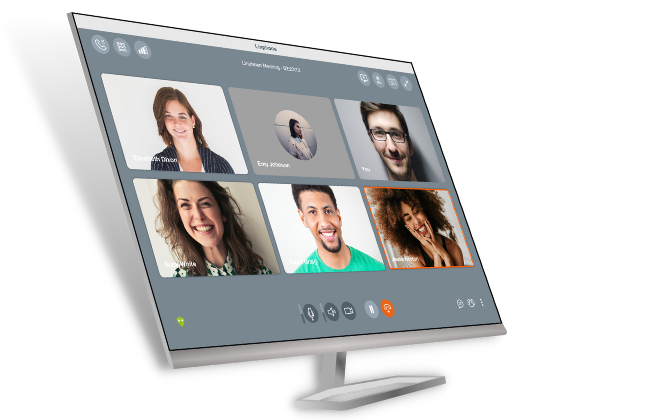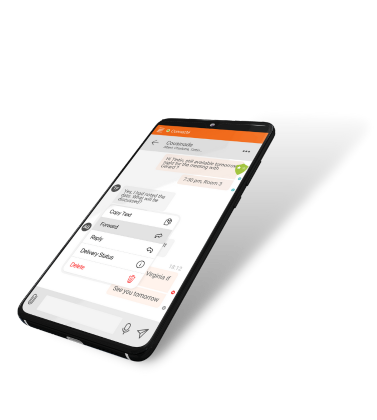Description
Liblinphone is a high-level library integrating all SIP calls and instant messaging features into a single easy-to-use API.
Doing an outgoing call is as easy as:
Tap the keyboard to perform your search
Liblinphone is a high-level library integrating all SIP calls and instant messaging features into a single easy-to-use API.
Doing an outgoing call is as easy as:
Two things are generally involved in telecommunications: media (transport of voice or video, encoding and decoding etc.), and signaling (routing calls, ringing, accepting a call etc.). Liblinphone combines these two aspects together to do most of these things automatically. This makes it easier for the programmer to implement video calls and instant messaging in any application, without being an expert in VoIP and telecommunications. Liblinphone is an open source library that is based on Mediastreamer2 for voice/video streaming and belle-sip for SIP signaling.
| Platform | Android | iOS | macOS | Windows (Win32, UWP) | Linux (desktop, embedded) |
|---|---|---|---|---|---|
| Supported languages |
Java/Kotlin |
Swift |
Swift C#, C++, C |
C#, C++, C | C#, C++, C |
| Distribution |
Maven |
Cocoapod zip source code |
|
Language |
Java/Kotlin | Swift | C# | C++ | C |
|---|---|---|---|---|---|
| API reference documentation | Doxygen | Doxygen | Doxygen | ||
| Code samples | C# tutorial |
- |
- |
Linphone and linphonec are directly based on Liblinphone.

The Liblinphone stack is suitable for building a VoLTE-compatible client, thanks to its interoperability with IMS networks and its available extension API.
The Mediastreamer2 plugin API could be used to incorporate the EVS codec
The low-level RTP transport API is suitable for interfacing with an API stack implementing RoHC (Robust Header Compression, RFC 3095)
Liblinphone leverages the Mediastreamer2 engine for rendering audio and video streams, and thus can take advantage of all the features implemented in Mediastreamer2.
For more information, see the complete list of media features in the Mediastreamer2 section.
Liblinphone is available on the following platforms:
REGISTRATION, CALLS, CORE FUNCTIONS
PRESENCE
ONE-TO-ONE & GROUP INSTANT MESSAGING
VCARD
Liblinphone is dual licensed, and can be licensed and distributed:
Liblinphone can be seamlessly imported in popular IDEs:
Alternatively, standard SDK packages are available from our release download directory:
Liblinphone SDK for Windows (32-bits)
Liblinphone SDK for Windows (64-bits)
Yocto recipes are available for Linux embedded systems.
The linphone-sdk project bundles Liblinphone and its dependencies as git submodules, in the purpose of simplifying the compilation and packaging of the whole Liblinphone suite, comprising Mediastreamer2, Belle-sip, Ortp and many others.
The submodules that are not developped or maintained by the Linphone team are grouped in the external/ directory.
The currently supported platforms are Android, iOS, Desktop (Linux, Windows, Mac OS X) and UWP (Universal Windows Platform).
You can find on GitLab the source code of linphone-sdk and of liblinphone, or you can clone it with Git.
It is still possible to compile the liblinphone project alone, but we recommend to compile linphone-sdk, as it is holding all the dependencies to build a full Linphone SDK.
| Project | Git repository |
| linphone-sdk, an umbrella project that contains liblinphone and all its dependencies | git clone https://gitlab.linphone.org/BC/public/linphone-sdk.git --recursive |
Code samples are publicly shared. They demonstrate how to use the Liblinphone API to implement common VoIP features, such as calls, messages, push notifications etc.
Liblinphone tutorials for Swift
Liblinphone tutorials for Kotlin
The Liblinphone developer guide is full of useful hints to start programming with Liblinphone, including:
Useful information for compilation can be found in the Readme file of the linphone-sdk project on GitLab/GitHub.
Liblinphone is a high-level library integrating all SIP calls and instant messaging features into a single easy-to-use API.
Doing an outgoing call is as easy as:


© Copyright 2023 - Linphone - Belledonne Communications SARL